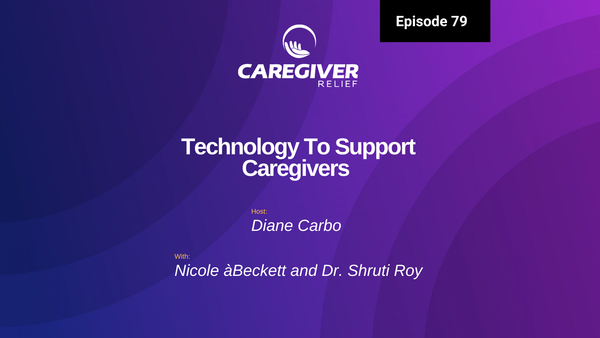When to Call Hospice?

Introduction to Hospice Care
When facing a terminal illness, difficult times ahead can be scary and overwhelming. Hospice care can provide comfort and support during this period of life, as well as support for the patient's family and caregivers. Hospice care is organized around meeting the needs of those who are in the last stages of an incurable illness, providing medical, psychological, and spiritual care.
Hospice care is focused on the quality of life, helping individuals remain as comfortable and independent as possible. Hospice services can be provided in the home, nursing home, assisted living facility, or hospice center, and may include pain management, nursing care, social worker visits, spiritual counsel, and bereavement counseling.
Hospice care offers an opportunity to get the most out of the remaining time with family and friends, providing both physical and emotional support. It is important to understand what hospice is and the types of services available in order to make the best decisions for yourself and your loved ones.
Hospice care is a difficult but important decision for many facing a life-limiting illness or advanced age-related illnesses. It is a supportive form of end-of-life care, provided to those who are not expected to live more than six months due to their illness.
For those considering hospice care, it’s important to know who qualifies and when to call. In this guide, we’ll provide an overview of who typically qualifies for hospice care and discuss any eligibility criteria or certifications needed.
Generally speaking, those who qualify for hospice care are those facing a life-limiting illness, age-related illnesses, and advanced illnesses. This includes conditions such as cancer, heart failure, stroke, dementia, and other serious illnesses. It also includes those who are in the end stages of their illness and no longer have the ability to function independently.
In order to qualify for hospice care, there are certain eligibility criteria that must be met. Usually, hospice patients must meet at least one of the following criteria:
- They have been diagnosed with a life-limiting illness or advanced age-related illness.
- They have been certified by a physician to have an estimated life expectancy of six months or less.
- They have a prognosis that indicates the disease process is chronic, progressive, and incurable.
- Their disease is unmanageable with treatment and interventions are no longer effective.
In addition to these criteria, patients must also have a certification from their physician, indicating they meet the requirements for hospice care. This certification must be obtained every 60 days throughout the course of the hospice care.
It’s important to note that hospice care is appropriate for those with terminal illnesses and is not meant to replace traditional medical treatments. In fact, it is intended to be used in conjunction with other treatments the patient may be receiving. Hospice care is not meant to prolong life, but to provide comfort and support during a difficult time.
By understanding the qualifications for hospice care, you can make an informed and empower decision about whether hospice care is right for you or your loved one.
Understanding the Role of Hospice
Hospice care is a type of medical service that is focused on providing compassionate care to those facing a life-limiting illness. It is designed to help the patient and their loved ones to make the most of the time they have together, by providing comfort and support throughout the journey.
Hospice care is different from palliative care in that hospice care focuses on the patient’s end-of-life journey, whereas palliative care is offered to patients with any type of serious illness. The primary goal of hospice care is to provide physical, emotional, and spiritual support, in addition to pain and symptom management. Hospice care is typically provided in the patient’s home or a hospice facility and includes services such as nursing, medical care, counseling, and spiritual support.
It is important for patients and their families to understand the benefits of hospice care. Hospice care can bring a sense of peace and comfort to the patient and family, knowing that they will be surrounded with love and care as the patient nears the end of his or her life. Hospice care also helps to ease some of the burden of caregiving, allowing family members to focus on spending quality time together.
For many, hospice care offers an opportunity to make the most of the time they have left, by creating memories and celebrating the life of the patient. The focus of hospice care is on quality of life and providing comfort and dignity during a difficult period.
Types of Hospice Services
When faced with a life-limiting illness, you and your loved ones may choose hospice care. Hospice services provide physical and emotional support while remaining in the comfort of your home, or in an inpatient facility. This section will discuss the different types of hospice services available, who provides them, as well as the cost and insurance coverage.
Inpatient Care
Inpatient care is available when the patient needs more intensive treatment than can be offered at home. The patient may receive regular visits from the hospice team while in the hospice center. Inpatient care is often used for respite care or symptom management when the patient needs more hands-on care.
Respite Care
Respite care offers temporary relief to caregivers. It enables family members or caregivers to take a break from caring for the patient without having to worry about their safety and well-being. Respite care can be provided in the patient’s home or in an inpatient facility, depending on the need.
Home-Based Care
Home-based care is typically the most frequent form of hospice care. A hospice team visits the patient at home, providing care and monitoring their condition. Home-based care may include help with personal care, such as bathing and dressing, as well as assistance with household tasks. The hospice team may also provide medications, medical supplies, and other treatments to help improve the patient’s quality of life.
Hospice Providers
Hospice services are typically provided by teams of medical professionals, volunteers, and other specialists. These teams usually include doctors, nurses, social workers and counselors, chaplains, and bereavement counselors. The team provides ongoing care and support for the patient and their family.
Cost & Insurance Coverage
The cost of hospice services varies depending on where they are provided. Most private health plans and Medicare cover hospice care, but it’s important to check with your insurance provider to make sure your plan covers the type of hospice care you are seeking. Some organizations also offer financial assistance to those in need.
When to Call Hospice: Guidance
Deciding to start hospice care can be a difficult and emotional process. Knowing when to call hospice can help you find comfort and support during difficult times. Although every situation is unique, there are some signs that may indicate it is time to make the call.
It may be time to call hospice if:
- Your physician has recommended hospice care for your loved one.
- You notice your loved one is struggling to manage their illness at home.
- Your loved one experiences frequent hospitalizations or emergency visits.
- Your loved one is in significant pain or discomfort.
- Friends and family are having difficulty providing the necessary care for your loved one.
If any of these signs are present, it may be beneficial to contact a hospice provider. The hospice team will be able to answer your questions and provide personalized guidance on finding the right care plan.
Keep in mind that it is never too early to call hospice for emotional or spiritual support. Even if your loved one is not yet eligible for hospice care, the hospice team can provide guidance on other options.
What to Expect From Hospice
When a person decides to pursue hospice care, it is important to understand what to expect from the hospice team. The primary goal of hospice is to provide supportive care and ensure the patient is as comfortable and pain-free as possible. Caregivers and family members should expect regular visits from hospice staff who will closely monitor the patient’s condition and provide necessary services.
The hospice team typically consists of a doctor, nurses, social workers, therapists, and other relevant professionals. They will coordinate with each other and the patient’s primary physician to ensure they are getting the best possible care. The team may also provide emotional and spiritual support to the patient and their loved ones.
In addition, the hospice team may provide treatments to help make the patient more comfortable, such as medication or massage therapy. They will focus on controlling pain, alleviating symptoms, and providing comfort for the patient. The hospice team is also someone to turn to in the event of an emergency.
Finally, it is important for caregivers or family members to know they can contact the hospice team at any time with any questions or concerns they may have. Communication with the hospice team is key in ensuring the best possible care for the patient.
Grief is not an easy emotion to cope with, particularly when it is associated with the decision to pursue hospice care. It is completely natural to feel scared, sad, confused, and even relief during this time. It is important to remember that no two people will experience the same emotions and that everyone needs to find their own way of coping.
There are many resources available to provide support for those facing grief as a result of a loved one entering hospice care. Grief counselors, support groups, and family therapy can all be beneficial in helping individuals cope with the grief associated with hospice care. In addition, there are a variety of online resources and books available to help individuals explore and process their grief.
One of the best ways to cope with grief is to simply talk about it. Having conversations with other people who have been through a similar experience can be very therapeutic. Find a trusted friend or family member to talk with, or join an online support group where you can share your thoughts and feelings.
It is also important to take care of yourself in any way you can. Take breaks from the situation, allow yourself to relax and give yourself a chance to unplug. While it can be hard to think of anything else during this time, try to engage in activities that don’t involve thinking about death and dying. Spend time with friends and family, go out and enjoy nature, or immerse yourself in a hobby.
Ultimately, everyone needs to take the time to grieve in their own way. There is no one-size-fits-all approach. Find what works best for you and know that it is perfectly normal to experience a variety of emotions. There is no timeline for grieving, so do whatever you need to do to get through it.
Making the Decision to Call Hospice
Deciding to call hospice is a difficult but courageous decision. It’s important to be realistic about the patient’s prognosis and to have open conversations with the patient and their loved ones. Before starting hospice care, it’s helpful to understand the emotions that may accompany this decision and to prepare for the journey ahead.
Understand the Patient's Prognosis
It’s essential to have an accurate assessment of the patient’s condition and prognosis. This will allow families to understand what the next steps should be and make decisions that are best for the patient. Working with the patient’s healthcare team can provide clarity on the nature of their illness and the most appropriate course of treatment.
Have Open Conversations With Loved Ones
When deciding to call hospice, it’s important to have open conversations with those closest to the patient. Discussing the potential benefits and challenges of hospice care can help ensure that everyone has the same expectations and goals.
Prepare for Emotions Associated with Hospice Care
The decision to call hospice is often an emotional one. Those who are involved in the decision-making process may feel grief, guilt, or fear. It’s important to recognize these emotions and to discuss them openly. Talking to a hospice nurse or counselor can help families cope with these feelings.
Remember: You Are Not Alone
It is important to remember that you are not alone in this journey. Hospice teams offer emotional, physical, and spiritual support for the patient and their family. Additionally, there are many resources available to help families learn more about hospice care and navigate its complexities. Seeking out these resources can help create a better understanding of the journey that lies ahead.
Choosing the Right Hospice
When faced with a life-limiting illness, selecting the right hospice team is an important decision. As you weigh your options, there are certain criteria to consider in order to ensure you receive the best possible care.
When selecting a hospice provider, it’s important to understand the types of services they offer. This includes not only the physical care, but also emotional and spiritual support. Additionally, check the availability of their services — how close are they to your location and what hours are they available?
The quality of care should also be taken into account. Talk to the hospice provider and ask about their policies and procedures for providing care. You should also research reviews online and gather feedback from previous patients and their families if possible.
Experience is also key in ensuring high-quality care. Seek out providers that have a long-term history in the field and have the expertise to handle a variety of situations.
Finally, make sure the hospice provider is properly trained and certified to provide the level of care you require. Ask them to show their credentials and ensure they have all of the necessary paperwork to provide the service.
Questions to Ask Before Starting Hospice Care
When considering hospice care for a loved one, it is important to have all the facts. Asking the right questions upfront can help ensure that the necessary hospice services are available. Here are some key questions to ask before beginning hospice care:
- What hospice services are covered under my particular health plan?
- Are additional services available?
- How many visits will the hospice team make each week or month?
- Who makes up the hospice team and what kind of experience do they have?
- What type of treatments are typically provided by hospice?
- What types of medications are provided?
- Are there any costs associated with using hospice care?
It is also important to get clarification on how the plan will work when it comes to end-of-life care. Asking these questions before starting hospice care can help ensure that you and your loved one have a clear understanding of what to expect.
Resources for Patients & Caregivers
When a family is considering hospice care, it is important to know that additional resources are available to help the patient and their loved ones. Here are some of the most recommended resources:
- Local Support Groups: Many communities have support groups and organizations dedicated to helping those who are facing a life-limiting illness or dealing with the grief of losing a loved one. These groups can offer emotional support and practical advice.
- Hospice Organizations: Hospice organizations are typically community-based and provide a range of services to help with end-of-life care. They also offer bereavement counseling and education about how to manage end-of-life care.
- Grief Counseling: Professional counseling services are available to help families cope with the loss of a loved one. These counselors can provide emotional support and help families navigate the emotions associated with hospice care and loss.
- Palliative Care Services: Palliative care services may be available to provide additional support to those with life-limiting illnesses. These services often include symptom management, pain relief, and emotional support.
By exploring these resources, patients and their caregivers can find the information and support they need as they face difficult times.
Deciding to call hospice is one of the most difficult decisions a person and their family will ever have to make. Throughout this guide, we’ve discussed the different types of hospice services available, when to call a hospice provider, how to choose the right hospice, and the resources that can help during this emotional time.
Choosing hospice care is not easy, but it can make a difference in the quality of life for those facing a terminal illness. With the right care, hospice patients can have greater comfort and control over their care, as well as the peace of mind that comes from being surrounded by those who understand what they are going through.
We hope this guide has provided you with the information you needed to make an informed decision about hospice care. Remember that your decision does not have to be made in isolation — there are many resources available to help answer any questions or concerns you may have.
At the end of the day, what matters most is that you are doing what you believe is best for your loved one. Hospice care is an amazing way to provide comfort and dignity to those in need, so don’t hesitate to reach out.
When facing a terminal illness, difficult times ahead can be scary and overwhelming. Hospice care can provide comfort and support during this period of life, as well as support for the patient's family and caregivers. Hospice care is organized around meeting the needs of those who are in the last stages of an incurable illness, providing medical, psychological, and spiritual care.
Hospice care is focused on the quality of life, helping individuals remain as comfortable and independent as possible. Hospice services can be provided in the home, nursing home, assisted living facility, or hospice center, and may include pain management, nursing care, social worker visits, spiritual counsel, and bereavement counseling.
Hospice care offers an opportunity to get the most out of the remaining time with family and friends, providing both physical and emotional support. It is important to understand what hospice is and the types of services available in order to make the best decisions for yourself and your loved ones.
Hospice care is a difficult but important decision for many facing a life-limiting illness or advanced age-related illnesses. It is a supportive form of end-of-life care, provided to those who are not expected to live more than six months due to their illness.
For those considering hospice care, it’s important to know who qualifies and when to call. In this guide, we’ll provide an overview of who typically qualifies for hospice care and discuss any eligibility criteria or certifications needed.
Generally speaking, those who qualify for hospice care are those facing a life-limiting illness, age-related illnesses, and advanced illnesses. This includes conditions such as cancer, heart failure, stroke, dementia, and other serious illnesses. It also includes those who are in the end stages of their illness and no longer have the ability to function independently.
At the end of the day, what matters most is that you are doing what you believe is best for your loved one. Hospice care is an amazing way to provide comfort and dignity to those in need, so don’t hesitate to reach out.
You might also like this article:








